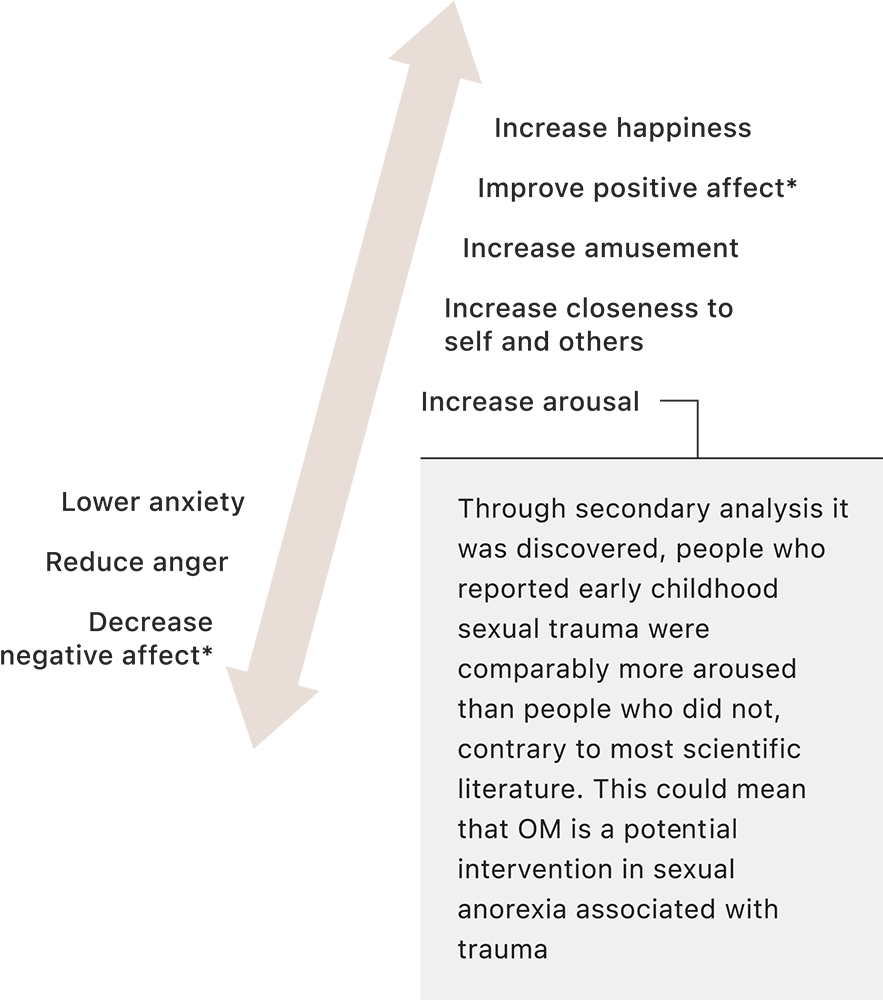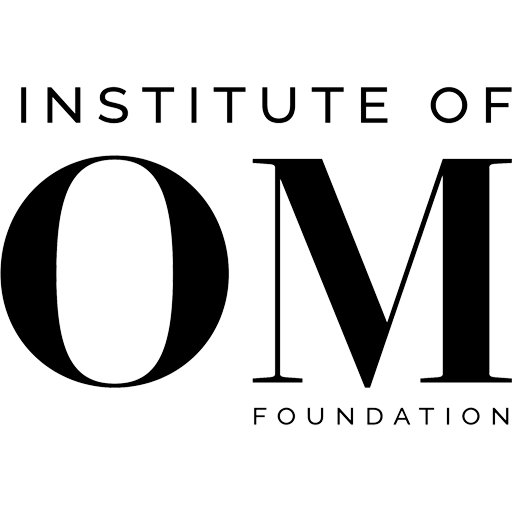OM & Depression
Exploring research into the benefits of Orgasmic Meditation for mitigating depression.
Advancing the Frontiers of Research on Depression
Anecdotal research shows that OM has aided many with symptoms of depression, already. Now, initial research into the benefits of OM for emotional health suggests the partnered consciousness practice may offer a pathway out of depression for many in need.
Based on a study of over 125 pairs, OM has been observed to improve emotional health
A March 2021 study conducted by the University of Pittsburgh and Liberos LLC found that OM decreases negative emotions, such as anger and anxiety, and increases happiness.
It is rare for a modality to expand “emotional range,” researchers note. Most modalities that impact positive or negative affect, such as antidepressants, are aimed at limiting the range.
Antidepressants are designed to reduce the intensity of fear and sadness. At the same time, they also reduce the intensity of positive emotions like happiness and contentment.
In contrast, by liberating emotional range, OM allows the practitioner to access a wider range of positive emotions. This has great implication for addressing negative states associated with depression.
According to Dr. Nicole Prause, founder of Liberos: “A lot of people who are depressed have trouble experiencing intense emotional feelings, and especially sticking with them. So, it’s that sustained positive response that people who are really depressed struggle with,” says Dr. Prause. “If Orgasmic Meditation could help people get to where they could sustain that pleasure for longer, that could be a huge win in helping to treat depression.”
Read about the study here.

My whole life, I had never wanted to be here.
Suddenly, I was glad to be exactly where I was.
–Courtenay, OM Practitioner
62% Report Mystical Experience
In a July 2021 study with 780 OM practitioners, 62 percent of participants reported a “mystical experience,” in a previous OM on par with people who had taken the second-highest dose of psilocybin therapy, as shown by the MEQ 30, a validated measure of mystical experience.
A follow-up OM/MEQ 30 study found that 23 percent of participants attained a mystical experience in their most recent session, with a strong correlation between partners.
Recent studies have shown psilocybin treatment produces large reductions in depression, addiction, and other mental health disorders over the long-term.
Study author, Dr. Vivian Siegel, concludes, “Given that OM apparently can trigger a mystical experience of similar power to psilocybin, and that psilocybin has shown promise in the treatment of mood and substance disorders, this study raises intriguing questions about whether OM might also be effective in the treatment of these disorders.”
Read the research here.
Increased Emotional Regulation
A November 2021 study conducted with 40 advanced OM practitioners at Thomas Jefferson University using functional magnetic resonance imaging found the OM practice affects region of the brain in ways similar to meditation practices designed to strengthen emotional regulation (Newberg et al., 2021). This means practitioners are likely to have greater self-control under positive or negative stress, and greater emotional resilience during difficult times. The changes in the brain were measured in OM practitioners in a resting state.
Read the research here.

